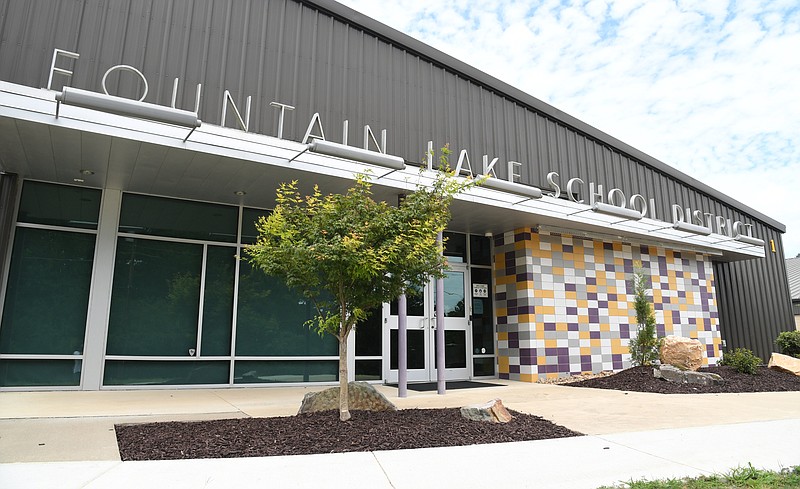The Arkansas Computer Science and Cybersecurity Task Focus recommended earlier this month that Arkansas schools add a requirement for a computer science credit to graduate from high school, a move that Fountain Lake's superintendent says he supports.
"I'm in support of it; we're currently at the secondary level with our IPT (Integrated Production Technologies) program. We're providing a framework for that. Our middle school is providing an exploratory class," Fountain Lake School District Superintendent Michael Murphy said.
"We're looking to strengthen some of the requirements, specifically providing computer science curriculum, and getting our curriculum more aligned with more of Gov. Asa Hutchinson's expectations," he said.
Murphy said that the district's IPT program is guiding exploratory learning around the computer science field.
"I think specifically what the governor is seeking is strengthening students with a really strong background in computer coding and that underlying element of the field as a whole," he said.
Since it will be a requirement to graduate from high school, Murphy said he wants to review the state's directives.
"There is going to be an influence in the element of staffing because then (we're) going to probably have to offer it more periods versus it being offered as an elective," he said.
Murphy said that he would encourage others to consider the value of an embedded credit -- counting the course in the area of math or science -- so that a student does not have such a narrow focus.
He said he recently attended a Chamber of Commerce meeting, and there was a consensus that "we are wanting to expand and prepare students in a position to be job-ready, and career ready upon high school graduation."
Murphy said that if the requirements become more stringent, then this may cause the students not to follow their career path, possibly an internship in a specific related field, and students in their junior and senior year may be limited further based on specific credits to achieve.
"That's kind of the negative implication when you're looking at expanding the number of credits that students are required to achieve," he said.
"I'm OK with that, but I'd want to have some flexibility for students so that we just don't add one more thing that is required without evaluating what is currently required," Murphy said.
He said that he does feel that this component is necessary, given how the world is advancing.
"(I feel it) will help students be prepared for the ever-changing workforce (that) they will enter into," Murphy said.
He said that he feels that as far as educators, they need to think about what they are going to offer, what they are going to require and all the other things that they currently acquire, tightly aligned to that same type of outcome that prepares students for the workforce.
"I think that it does help prepare them, but I think students being lifelong learners, and having the ability to adapt and be flexible are trade characteristics because a lot of the workforce is willing to invest in helping educate that individual if they come to them with the basic set of criteria and the responsibility on top of those components to conduct the work," Murphy said.
